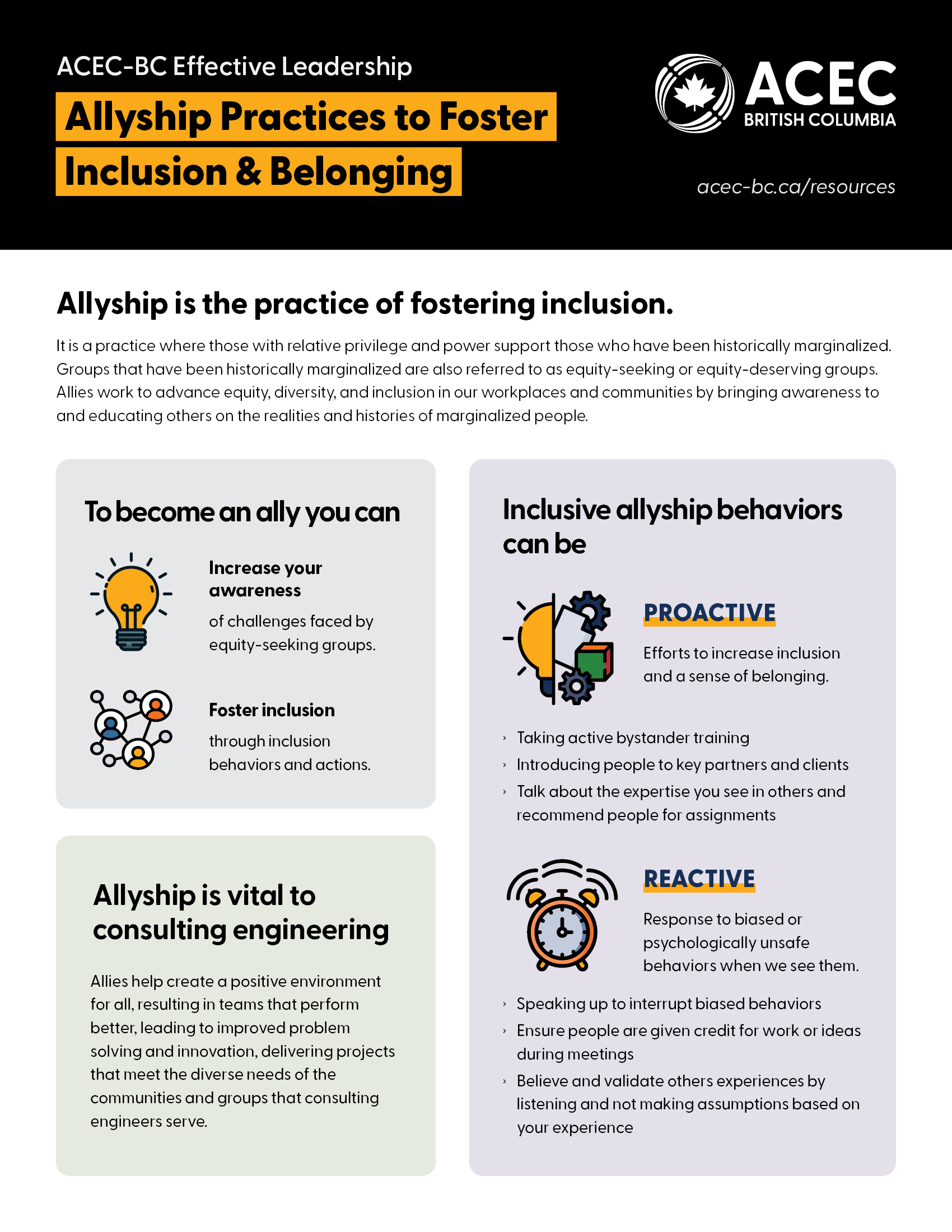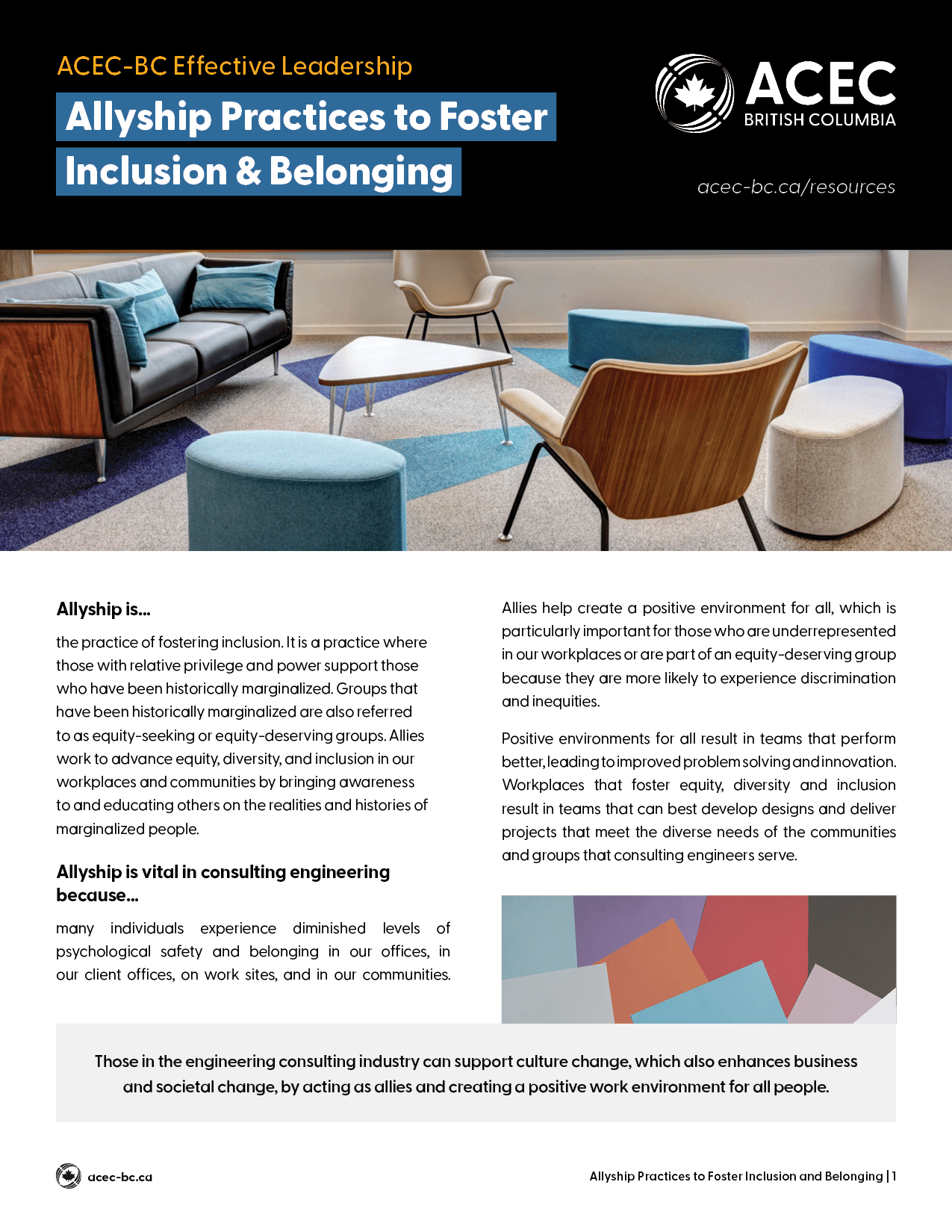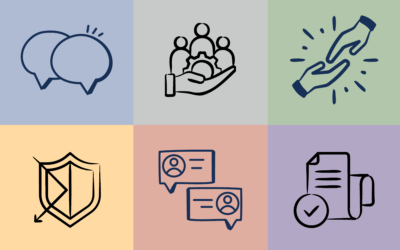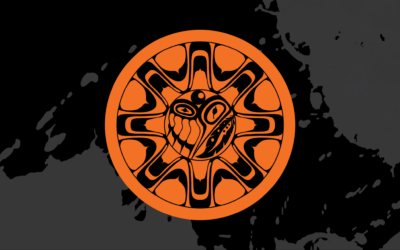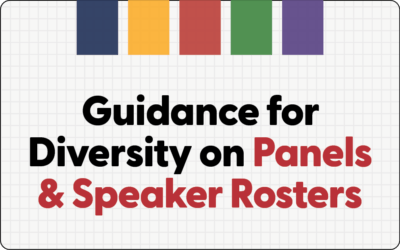ACEC-BC Effective Leadership
Allyship Practices to Foster
Allyship Practices to Foster Inclusion & Belonging
Inclusion & Belonging
Did you know…
only
%
of professional engineers identify as Indigenous, even though Indigenous people make up 5% of Canada’s population
only
%
of practicing professional engineers in Canada identify as women
women engineers are paid
%
less than engineers who are men
+
significantly less research has been conducted to examine the representation and experiences of professional engineers who are disabled, visible minorities, or members of the 2SLGBTQ+ community, especially within the consulting engineering industry
Some communities or groups of people experience barriers, based on their identities, to participate in society and the workplace. These communities, or equity-deserving groups, are frequently underrepresented in our workplaces, as evidenced in the above data, as a result of barriers to equal access, opportunities, and resources due to disadvantage and discrimination. This marginalization can be created by attitudinal, historic, social, and environmental barriers based on characteristics that are not limited to but include factors such as sex, gender, gender expression, age, ethnicity, race, nationality, disability, sexual orientation, religion, and family or marital status.
Those in the consulting engineering industry can support culture change, which also enhances business and societal change, by acting as allies and creating a positive work environment for all people.
To support members, the ACEC-BC Equity, Diversity, and Inclusion committee, in collaboration with Prairie Catalyst Consulting, has developed the following resources:

